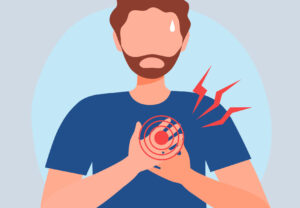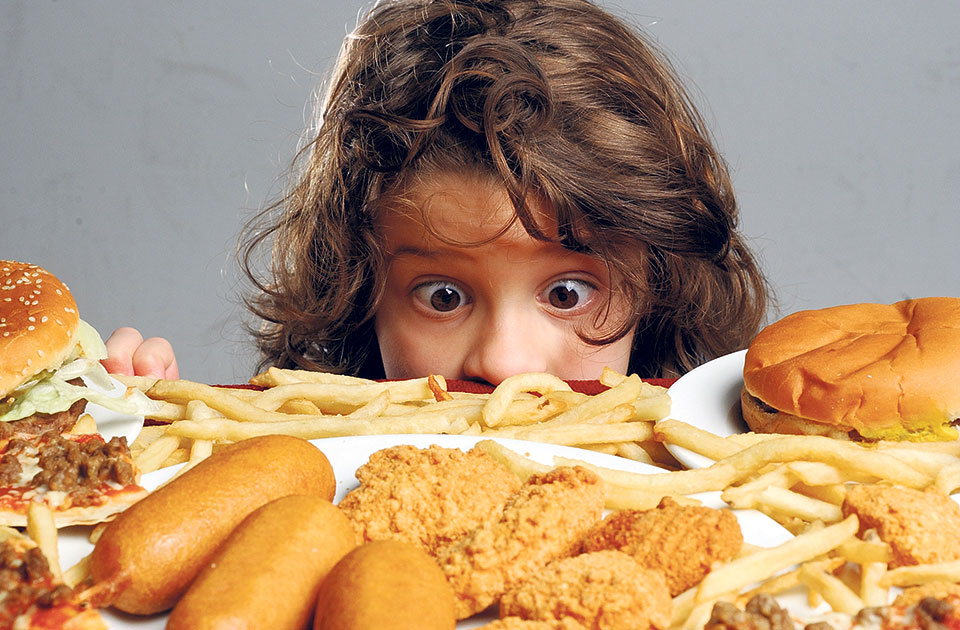It’s no secret that fatty foods are delicious. French fries, pizza, ice cream- they all taste amazing! But unfortunately, eating too many fatty foods can have negative consequences on our health. In this blog post, we will discuss some of the most common causes of fatty food temptations. We will also provide a few healthy tips that are sure to stop your cravings!
Contents
What Are Fatty Food Temptations?
 Most of us are familiar with the feeling of being tempted to eat fatty foods. Fatty food temptations are usually caused by two things: hunger and cravings. When we are hungry, our bodies crave energy-rich foods that will give us a quick boost of energy. This is why fatty foods are so tempting- they tend to be high in calories and provide a lot of energy. However, if we eat too many fatty foods, we can end up gaining weight.
Most of us are familiar with the feeling of being tempted to eat fatty foods. Fatty food temptations are usually caused by two things: hunger and cravings. When we are hungry, our bodies crave energy-rich foods that will give us a quick boost of energy. This is why fatty foods are so tempting- they tend to be high in calories and provide a lot of energy. However, if we eat too many fatty foods, we can end up gaining weight.
Cravings are another common cause of fatty food temptations. Cravings are usually caused by a lack of certain nutrients in our diet. For example, if we crave chocolate, it might be because we are lacking magnesium. Or if we crave fried foods, it might be because we need more healthy fats in our diet. Whatever the case may be, cravings can be very powerful and difficult to resist.
Triggers Of Fatty Food Temptations?
Fatty food temptations can be triggered by a variety of things. It differs from person to person. For some people, the smell of fried chicken might trigger a craving. For others, seeing their favorite fast food restaurant might be a trigger. Some of the common triggers of fatty food temptations are:
Sight
When we see food, our brain starts to think about how it tastes. This can trigger a craving for the food, even if we’re not actually hungry. This is why it’s so difficult to resist fatty food temptations when we’re out at a restaurant or walking through the grocery store. It’s hard to ignore all of the tempting foods that are right in front of us!
Smells
Certain smells can also trigger cravings. For example, the smell of freshly baked cookies might make us crave sweets. Or the smell of frying bacon might make us crave a greasy breakfast. This is because our sense of smell is closely linked to our memories and emotions. Certain smells can trigger happy memories or make us feel nostalgic. This can lead us to crave the food that is associated with that smell.
Emotional eating
 Sometimes, we eat fatty foods because we are trying to satisfy an emotional need. We might be bored, stressed, or sad and turn to food for comfort. This is often referred to as emotional eating. Emotional eating can be a difficult cycle to break because we often turn to food when we’re feeling down. However, it’s important to find other ways to cope with our emotions instead of using food as a crutch.
Sometimes, we eat fatty foods because we are trying to satisfy an emotional need. We might be bored, stressed, or sad and turn to food for comfort. This is often referred to as emotional eating. Emotional eating can be a difficult cycle to break because we often turn to food when we’re feeling down. However, it’s important to find other ways to cope with our emotions instead of using food as a crutch.
Sounds
Certain sounds can also trigger cravings. For example, the sound of a can opener might make us crave canned soup. Or the sound of a microwave might make us crave popcorn. This is because sounds are often associated with certain foods. When we hear a particular sound, our brain starts to think about the food that is usually associated with that sound. This can trigger a craving for the food, even if we’re not actually hungry.
Tastes
Tastes are one of the most common triggers of fatty food temptations. Certain tastes can trigger cravings for certain foods. For example, the taste of salt might make us crave chips. Or the taste of sweetness might make us crave candy. This is because our taste buds are directly connected to our brains. When we taste something, our brain starts to think about the food that is usually associated with that taste. This can trigger a craving for the food, even if we’re not actually hungry.
Touch
Touch can also be a trigger for fatty food temptations. For example, the feel of a soft, fluffy towel might make us crave a warm, gooey cinnamon roll. Or the feel of a cold, hard piece of ice might make us crave a refreshing popsicle. This is because our sense of touch is closely linked to our sense of taste. When we feel something, our brain starts to think about how it tastes. It’s hard to resist the temptation of food when we can smell it, taste it, and feel it!
Are There Any Risks?
While there’s nothing wrong with indulging in fatty foods every once in a while, there are some risks associated with eating too much fatty food. Eating a diet that is high in fat can lead to a lot of health problems, including:
High cholesterol
A high level of cholesterol is one of the most common risks associated with eating fatty foods. When we eat foods that are high in fat, our bodies produce more cholesterol. This can lead to a build-up of cholesterol in our arteries, which can eventually lead to heart disease. It’s important to be aware of the cholesterol content of the foods we eat and to limit our intake of fatty foods.
High blood pressure
Another common risk associated with eating fatty foods is high blood pressure. When we eat foods that are high in fat, our bodies have to work harder to pump blood through our arteries. This is because the fat makes the arteries narrower, which makes it harder for blood to flow through them. It can eventually lead to high blood pressure. Make sure to check the label of fatty foods to see how much fat they contain.
Heart disease
 Heart disease is a serious condition that can be caused by eating fatty foods. Eating a diet that is high in fat can eventually lead to a build-up of plaque in our arteries. This build-up of plaque can narrow the arteries and cause heart disease. Make sure to check with your doctor if you’re concerned about your risk of developing heart disease.
Heart disease is a serious condition that can be caused by eating fatty foods. Eating a diet that is high in fat can eventually lead to a build-up of plaque in our arteries. This build-up of plaque can narrow the arteries and cause heart disease. Make sure to check with your doctor if you’re concerned about your risk of developing heart disease.
Stroke
A stroke is another serious condition that can be caused by eating fatty foods. It is a condition in which the blood supply to the brain is cut off. This can happen if a blood clot forms in one of the arteries that supply blood to the brain. When this happens, the brain cells can start to die. Eating a diet that is high in fat can increase your risk of developing a blood clot.
Diabetes
Eating a diet that is high in fat can also lead to diabetes. This is because fat can make it difficult for the body to process sugar. When this happens, the sugar builds up in the blood and can eventually lead to diabetes. If you’re concerned about your risk of developing diabetes, make sure to check with your doctor.
Obesity
Eating a diet that is high in fat can also lead to obesity. This is because fat contains more calories than other nutrients. When we eat more calories than we burn, the excess calories are stored in our bodies as fat. This can lead to weight gain and obesity. You can learn more about obesity and how to prevent it by talking to your doctor.
How To Resist Fatty Food Temptations?
Now that we know some of the risks associated with eating fatty foods, let’s talk about how to resist the temptation. Here are some tips:
Avoid trigger foods
Trigger foods are those that make us crave fatty foods. To avoid trigger foods, try to eat a balanced diet that includes plenty of fruits, vegetables, and whole grains. Avoid processed foods, sugary drinks, and fast food. Trigger foods can also be different for everyone. So, if you know that certain foods make you crave fatty foods, try to avoid them.
Eat mindfully
Mindful eating is a great way to resist temptation. When we eat mindfully, we pay attention to the food we’re eating and the experience of eating. This can help us to appreciate the food more and to feel fuller faster. To eat mindfully, try to eat slowly and without distractions. Pay attention to the taste, texture, and smell of the food. And, when you’re full, stop eating.
Plan ahead
 If you know you’re going to be in a situation where you’ll be tempted to eat fatty foods, it’s important to plan ahead. This means packing healthy snacks and meals and making sure you have a plan for what you’ll eat. If you’re going to be at a party or event, try to eat before you go so that you’re not as tempted to eat unhealthy foods.
If you know you’re going to be in a situation where you’ll be tempted to eat fatty foods, it’s important to plan ahead. This means packing healthy snacks and meals and making sure you have a plan for what you’ll eat. If you’re going to be at a party or event, try to eat before you go so that you’re not as tempted to eat unhealthy foods.
Eat regular meals
Eating regular meals can help to control your cravings. When we skip meals, our blood sugar can drop and this can make us crave sugary and fatty foods. To avoid this, try to eat three regular meals each day. And, if you’re going to be snacking, make sure to choose healthy snacks like fruits and vegetables.
Distract yourself
If you’re feeling tempted to eat fatty foods, try to distract yourself. This can be anything that takes your mind off of food. You could try reading a book, watching a movie, or going for a walk. It’s important to find something that works for you. You may need to experiment to find what works best and to find something that you can do in the moment.
Find support
If you’re struggling to resist temptation, it’s important to reach out for help. Talk to a friend or family member who can offer support. You could also join a support group or look for online resources. There are many people who are struggling with the same thing. You’re not alone.
Making lifestyle changes can be difficult. But, if you’re concerned about your health, it’s important to make an effort to eat healthier. Try incorporating some of these tips into your life and see how they work for you. Remember, every little bit counts. And, if you slip up, don’t be hard on yourself. Just get back on track and keep going.
Conclusion
Fatty food temptations are hard to resist, but there are ways to make it easier. By planning ahead, being mindful of your triggers, and having healthy alternatives on hand, you can say no to unhealthy foods and feel good about them. Start making changes today and your body will thank you for it in the long run.
Remember that you are in control of your food choices. When you make the decision to eat healthy, delicious foods, you are making a positive choice for your body and your health. So don’t let fatty food temptations get the best of you – resist them and feel proud of yourself for doing so!
For more tips on healthy eating, you can contact Mantra Care. They have a team of highly skilled and experienced Dietitians, Nutritionists, and Diabetes Educators who can help you develop a healthy relationship with food. You can also get in touch with their nutrition experts and expert dietitians through their online nutrition counseling, who can guide you through the process and help you achieve your fitness goals.


